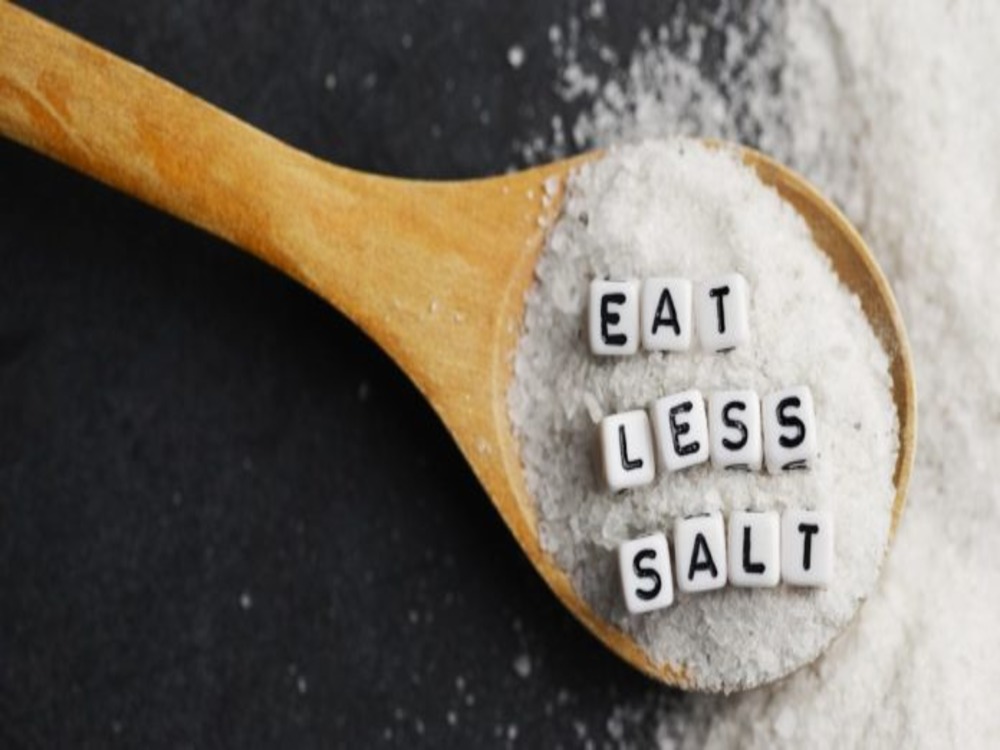Great Health Great Fitness
introduction:
In the realm of nutrition, the advice to “take it with a grain of salt” might need
reassessment. Salt, a common yet often overlooked component of our diets, plays
a crucial role in our overall health. However, excessive salt intake has been linked to
a myriad of health issues, making a strong case for promoting lower salt
consumption in accordance with nutritional requirements. In this blog, we’ll explore
the reasons behind this advocacy and the long-term benefits it can bring.
The Salt Story: More Than Just Flavor
Blood Pressure Blues:
● High sodium intake has been directly associated with elevated blood
pressure. Hypertension, or high blood pressure, is a significant risk
factor for heart disease and stroke, two leading causes of death
worldwide.
Hidden Dangers in Processed Foods:
● Many processed and packaged foods contain high levels of hidden
salt. From snacks to canned soups, the convenience of these foods
often comes at the cost of increased sodium intake.
Kidney Conundrum:
● Excessive salt can strain the kidneys, potentially leading to kidney
damage over time. Our kidneys play a pivotal role in regulating the
body’s fluid balance and blood pressure.
Edema and Fluid Retention:
● High salt levels can contribute to edema, the accumulation of excess
fluid in body tissues. This can lead to swelling in the extremities and
discomfort.
The Push for Low Salt Diets: Why Should We Care?
Cardiovascular Health:
● Lowering salt intake has a direct impact on reducing the risk of
cardiovascular diseases. By maintaining healthy blood pressure levels,
individuals are less prone to heart attacks and strokes.
Kidney Preservation:
● A diet with reduced salt can contribute to better kidney health,
preserving their function and minimizing the risk of kidney-related
complications.
Population-Level Impact:
● Advocating for low salt intake on a broader scale can have a
population-wide impact, reducing the overall burden of cardiovascular
diseases and related health issues.
Prevention is Key:
● Encouraging lower salt consumption is a proactive approach to health.
Rather than waiting for health issues to arise, adopting a low salt diet
serves as a preventive measure.
Public Awareness and Education:
● Promoting low salt intake involves raising awareness about the
sources of hidden salt in diets and providing educational resources on
making healthier food choices.
Practical Tips for Reducing Salt Intake:
Read Food Labels:
● Be vigilant about reading labels on packaged foods. Opt for products
with lower sodium content.
Cook at Home:
● Homemade meals allow you to control the amount of salt in your
dishes. Experiment with herbs and spices for flavor instead.
Limit Processed Foods:
● Minimize the consumption of processed and fast foods, as they often
contain high levels of salt.
Choose Fresh Produce:
● Whole, unprocessed foods like fruits, vegetables, and lean proteins are
naturally lower in salt.
Gradual Reduction:
● If you’re used to a saltier taste, try gradually reducing salt in your meals
to allow your taste buds to adjust.
Conclusion:
While salt is an essential component of our diets, moderation is key. By advocating
for lower salt intake in accordance with nutritional requirements, we empower
individuals to take control of their health and reduce the risk of serious medical
conditions. The journey towards a healthier lifestyle starts with a conscious effort to
shake off excess salt – a small step with potentially significant and lasting benefits.

